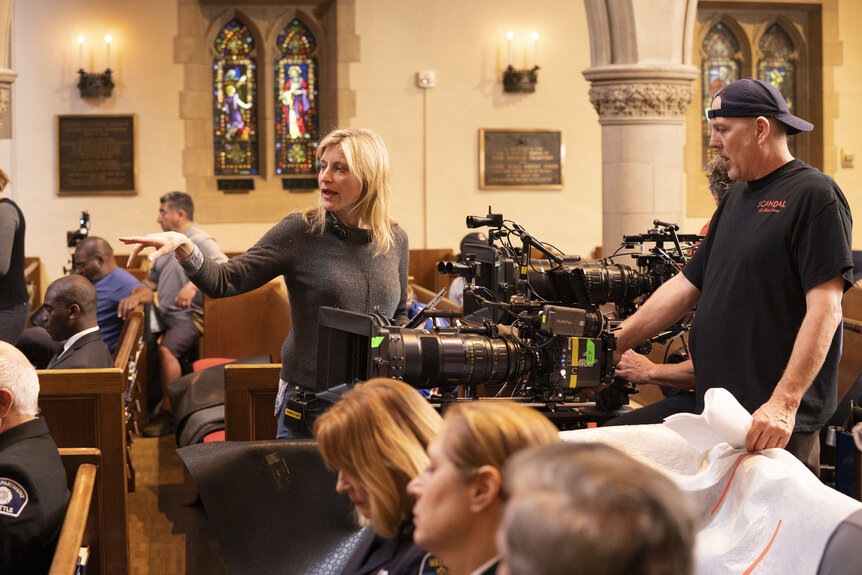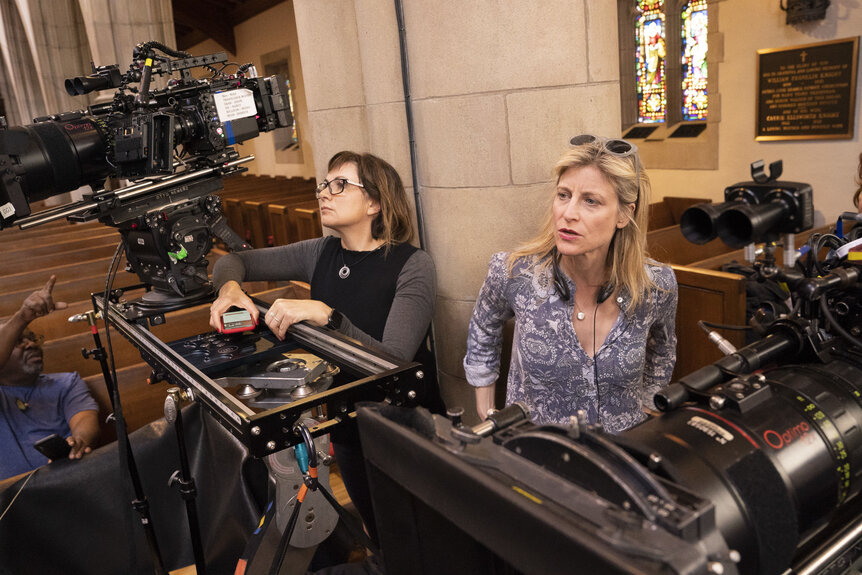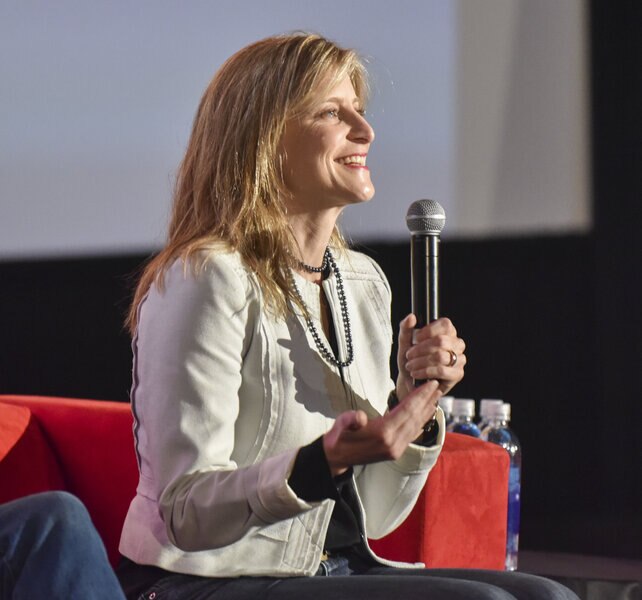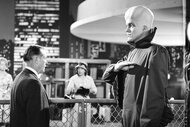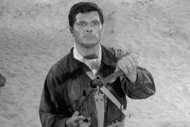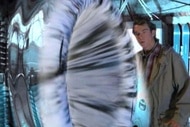Create a free profile to get unlimited access to exclusive videos, sweepstakes, and more!
Director Tessa Blake talks Charmed, iZombie, and how the industry is evolving
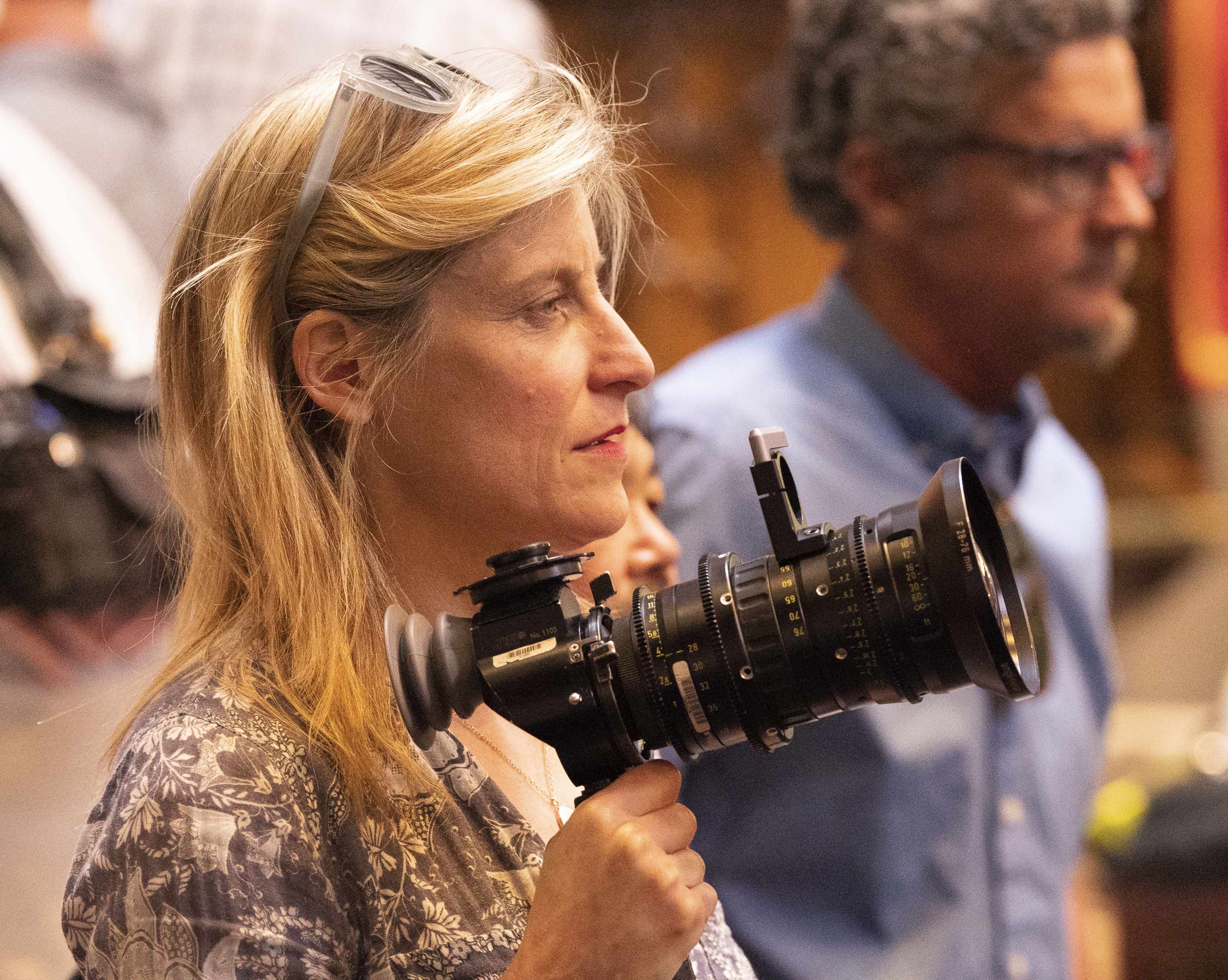
The percentage of women directing episodes of broadcast television in the US rose to a recent historic high during the 2018-2019 season. Women comprised 30 percent of directors, an increase of 11 percent from the previous season. "You don't get better at directing unless you've directed a lot and the place you get to direct a lot is television," reflected Tessa Blake when recently speaking to SYFY FANGRRLS over the phone about her career as a director. Charmed, iZombie, Veronica Mars, Once Upon a Time, and NCIS: New Orleans are among some of the TV shows Blake has recently directed.
It was actually a documentary feature that started the director down this particular creative path. Five Wives, Three Secretaries, and Me premiered at SXSW in 1998, was honored by the Academy, and picked up theatrical distribution. However, this didn't automatically lead to a career directing. Blake explained that when she took rounds of meetings with agents after this big breakthrough moment, her desire to direct TV was not met with enthusiasm or even encouragement.
"They all to a number, looked me up and down and said, "No, that's not going to work for you." Taking this rejection personally, Blake thought, "They must be seeing something in me that made them understand I wouldn't be good at this job."
After this experience, Blake went on to build a career in TV as a writer with her husband, but the pull of directing was too strong to ignore, and eventually, it became a matter of figuring out how she could get paid for this particular job. "I looked at the landscape of TV directors — many of whom I knew and had come up with, in theatre in New York — and I thought, 'They're really good directors, but fundamentally they're no better than I am. So why are they working and I'm not?'" This led to a re-evaluation of those previous meetings in which she came to understand that cultural bias had played a role. "I was able to take the sting of the personal out of it and understand there are structural factors here."
So what drew Blake to television? "The hope, as an episodic TV director, is to direct really fun stuff and to get to work on a lot of different material, but also what's really meaningful in terms of parity and equality in our culture is to get paid for it." Character is what appeals to Blake, as well as working with creators and writers including Rob Thomas, Diane Ruggiero-Wright, and Dan Etheridge "who always find their way into story through female leads." This includes iZombie, which Blake directed three episodes of during its five-season run. Returning to a show you have already worked on makes the whole process a lot easier "because stepping into the first time on a show you've never been on is a little like starting a new high school and telling the popular kids where to sit on the first day." Each production is different, as Blake explained. "It's like its own micro-culture, and you have to be a little bit of an anthropologist, to understand it and to work effectively inside of it."
Blake recently worked on Charmed for the first time, directing the Season 2 episode "The Truth About Kat and Dogs." Having previously worked with showrunners Liz Kruger and Craig Shapiro on Salvation, she referred to this job as a "no brainer." These previous relationships also led to some fun opportunities. "I think I know from the writers' room that they were looking forward to me coming in to do the weird episode. I think I might be getting a reputation for being able to handle the strange and unusual episodes." In this episode, Harry (Rupert Evans) is in search of his lost human memories. The intention was to keep it "very subjective and haunting." Blake noted that the art department were great collaborators, as well as singling out the director of photography, Joe Gallagher, "who is just a genius painting with light."
Opportunity is a huge part of breaking into this business and Blake acknowledged this is an industry predicated on who you know, so cultivating those relationships is a vital aspect. "There's a statistic that says that women have broader and better friendships and relationships, and we are terrible at asking those friends to help us in our work lives," she noted. "That needs to change because this is how we help each other." It isn't just who you know, but the level of work you put in. "Be prolific, keep learning, read a lot, watch a lot, have really good peers around you who can give you meaningful criticism so that you can get better. You have to be good. Taste is subjective, but quality filmmaking irrespective of taste is very clear."
The industry has changed a lot over the last few years, including addressing greater equality behind the scenes. There is, of course, the huge cultural shift that we are still in the midst of as a result of the #MeToo movement, "No matter who you are, male or female, until #MeToo my experience was that the patriarchal hierarchy, was a given." In October 2017, everything changed, "For the first time it wasn't 'He said, she said,' it was, 'He said, she said, she said, she said, she said.' And that allowed all of us to reimagine a world in which the dominant structure, might not hold. And that all the things that had been true for so long were now up to being questioned." While there is still much to be done, Blake added, "I think there's an opportunity here for everyone to reshape a more equitable, just, and thoughtful world together."
Blake has a teenage daughter, someone she thinks of when choosing projects — "There's no way, once you have a child, that you don't have that lens" — and she is also someone Blake turns to for advice. "I ask her to watch my cuts of particular shows before I deliver them because she's such a good eye. I ask her and she graciously participates in my work life a lot. And it does matter to me that I'm making work that at the very least we can enjoy together."
Blake's continuing work with the American Film Institute and the programs they offer enables her to give back to this community of filmmakers and ensure that the next generation of women have opportunities. She participated in the ABC/DGA Creative Talent Development program in which she shadowed directors including Mimi Leder. She also earned a place on the AFI Directing Workshop for Women (DWW), which has been running since 1974 and annually gives eight women (who are already working in the industry) immersive training.
"These are women poised to kill it," Blake said when discussing her experience with the program. "I felt so grateful to be part of the class of women with extraordinary peers and brilliant teachers of the kind of film boot camp. I felt tremendously validated and had not had that experience really before. And that really was the rocket fuel to making the next series of career steps."
Since taking part in the DWW, Blake "had the great good fortune of being asked to run that program because I had some non-profit executive director experience." She has since taken on the Nancy Malone Director of Inclusion Initiatives at AFI. "So I'm now looking at all the different ways in which we can help create a different kind of industry." There are skilled and experienced women out there, but this is not reflected in who holds these positions. "It was very clear to me that the AFI Conservatory graduates, brilliant cinematographers... half of those are women. Yet, the industry only reflects about three or four percent female DPs. That seems like a travesty to me." It can be hard to measure just how successful these programs actually are, but Blake pointed out it "can be a really great way to bring qualified talent, the attention of the people who need to know them."In the 20 years since Blake's first feature documentary premiered at SXSW, the amount of women behind the camera has increased. It is no longer a case of only a handful of opportunities available. As with a lot of the characters that lead the shows she directs on screen, there are elements that aren't easy, but she also relishes these moments. "Every job has a different hardest part of it. But the challenge is what makes it super fun and why I hope to never stop."
